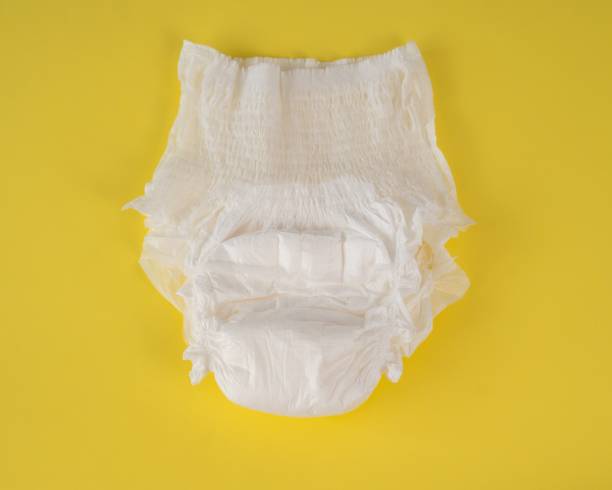Experiencing heavy menstrual bleeding can be overwhelming and disruptive. Understanding what constitutes a heavy period, its causes, and ways to manage it can make this phase more manageable and improve overall well-being. Here’s everything you need to know about handling heavy periods.
How Heavy is Too Heavy of a Period?
A heavy period, medically known as menorrhagia, is characterized by losing more than 80 mL of blood per cycle or needing to change pads or tampons every 1-2 hours. If you frequently pass large blood clots or your period lasts longer than 7 days, it’s considered heavy and may require medical attention.
Why is My Period So Heavy and Clotty?
Heavy periods can result from various factors, including hormonal imbalances, uterine fibroids, polyps, or conditions like endometriosis and adenomyosis. Certain medications, such as blood thinners, or changes in contraceptive methods can also cause excessive bleeding. Sometimes, a heavy flow might signal an underlying health issue, like a thyroid disorder or bleeding disorder.
What Does a Heavy Period Indicate?
- Normal or not? Occasional heavy periods may not be alarming, especially during puberty or perimenopause, when hormones fluctuate.
- Unhealthy Signs: Consistently heavy periods may indicate anemia, hormonal imbalances, or reproductive health conditions requiring a doctor’s intervention.
How to Cope with Extremely Heavy Periods
- Medical Treatment Options
- Iron Supplements: Address anemia caused by heavy blood loss.
- Hormonal Therapy: Birth control pills or IUDs can regulate periods.
- Non-Hormonal Medications: Tranexamic acid or NSAIDs can reduce bleeding.
- At-Home Remedies
- Hydration and Rest: Staying hydrated and getting enough sleep can reduce fatigue caused by heavy bleeding.
- Herbal Teas: Certain teas, like ginger, raspberry leaf, or chamomile, may help regulate flow and ease cramps.
- Diet: Foods rich in iron (e.g., spinach, red meat) and Vitamin C (e.g., citrus fruits) can help replenish lost nutrients.
- Lifestyle Adjustments
- Exercise Moderately: Gentle yoga or stretching may improve blood flow without exacerbating bleeding.
- Avoid Foods That Worsen Flow: High-sodium and processed foods may worsen bloating and flow intensity.
How Many Pads a Day Are Heavy?
Using more than 6-8 pads or tampons per day could be an indicator of heavy bleeding. Consider wearing overnight or extra-absorbent pads during the day if necessary, and ensure frequent changes to maintain hygiene.
Products to Use for Heavy Periods
- Extra Absorbent Pads or Tampons: Designed specifically for heavy flows to prevent leaks.
- Period Underwear: Provides added security and comfort, especially at night.
- Menstrual Cups: Can hold more blood than pads or tampons, reducing the frequency of changes.
- Double Protection: Use a tampon with a pad or period underwear to ensure no leaks occur.
Can a Heavy Period Drain You?
Yes, losing significant blood during your period can lead to fatigue and dizziness due to reduced iron levels. Ensure adequate rest, hydration, and iron intake to combat these effects. Sleeping longer during heavy periods may also help restore energy levels.
Natural Ways to Stop or Reduce Heavy Periods
- Drink Cinnamon Tea: Known for its anti-inflammatory properties, cinnamon can help reduce menstrual flow.
- Consume Vitamin K: Found in kale and broccoli, Vitamin K can help regulate clotting and reduce heavy bleeding.
- Apple Cider Vinegar: Diluted with water, it may aid in hormonal balance and reduce flow.
How to use two pads for heavy flow?
Some time when you got heavy flow, and don’t have period panty in hands, so you can put two pads together, for example, put one pad stick on the surface of another one pad, that the pad will be much longer, avoid be leakage to pants or other clothes, bed sheet.
Should You Sleep More on Your Period?
Yes, especially during heavy periods. Extra sleep helps combat fatigue and allows the body to recover from blood loss. Elevating your legs while lying down may also reduce flow intensity temporarily.
When to Seek Medical Help
If your heavy periods are accompanied by severe pain, persistent fatigue, or symptoms of anemia like pale skin or shortness of breath, consult a healthcare provider. Treatments like uterine ablation or other surgical interventions may be necessary for severe cases.
In Summary
Heavy periods, though common, can significantly impact your daily life. By identifying the causes and employing both natural and medical strategies, you can manage symptoms effectively. Always consult a doctor if heavy bleeding disrupts your routine or raises health concerns. Take care of yourself with the right products, adequate rest, and a balanced diet to feel more in control during your cycle.

